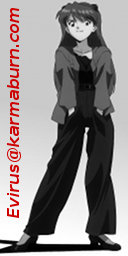|
|
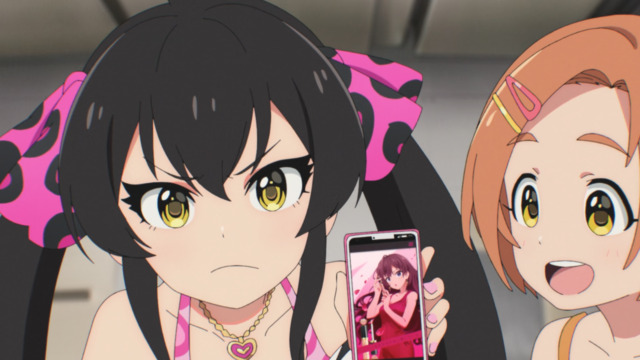
Tiny pictures are the way of love.
I don't know what I expected. Nine child idols do kid-type things. At least that's what THE IDOLM@STER Cinderella Girls: U149 has been like for its first couple of episodes. This was especially true for the second episode because its focal point was one of the two nine-year-olds in the cast. Ostensibly, the U149 title refers to how all of the idols in this troupe are under 149 centimeters (4'11") in height. This is accurate, but they're all quite a bit under. The tallest is 145 centimeters (4'9") and the shortest is 128 centimeters (4'2"). And they are all kids. Five of the nine are 12, but none are older. Meaning, there are no token short adults in the cast (well, I guess their Producer). I.e., there is no equivalent to Baba Konomi from the Million Live! set.
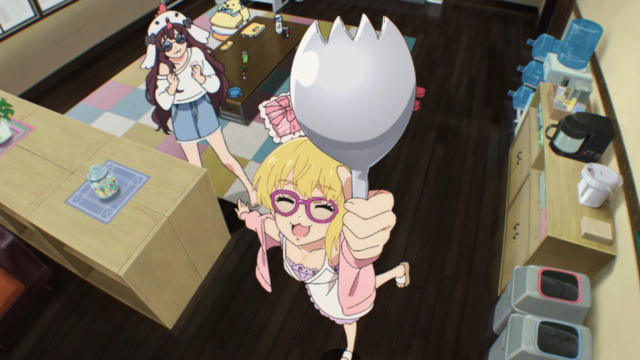
The U149 office really does look like a daycare center.
I enjoy iDOLM@STER as a secondary (really, probably tertiary) fan, but I'm unsure I'll have a good reason to keep watching this. At least the focus episode for one of the two youngest characters is out of the way. Maybe I'll find the subsequent episodes more entertaining. Promising to have a steady stream of cameos from other Cinderella Girls characters is probably enough to keep me watching, but I'll appreciate U149 itself a lot more if it makes an effort to offer something more compelling. I hope there's more to this anime than predictable canned scenes. Will the sporty one get to talk about subjects that aren't purely intended to remind us she's the sporty one? Is Risa going to contribute anything to the series that does not involve lolicons? If U149 doesn't deliver actual content, then the show is going to drag.
Posted in Cinderella Girls: U149 | Tags: Ensemble Cast, Idols, Initial impressions, Season Introduction, Spring 2023, Tiny Pictures Are the Way of Love | Permanent Link
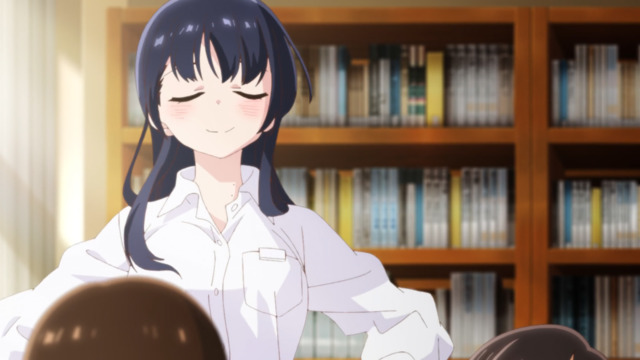
You sure seem pleased about your incredibly ineffective attempt at hiding.
I don't remember how I first encountered Boku no Kokoro no Yabai Yatsu (The Dangers in My Heart), but summaries of the manga set it up for failure. First of all, it's a middle school romance depicted from the male protagonist's point of view, and he seems obsessed with murder fantasies? That ought to be three strikes right there. Nevertheless, I'm really glad I gave it a chance and trusted in the strength of its reputation. Appropriately, the series is about subverting expectations and not rushing to judgment based on one's superficial impressions of others. There's no small irony here that the anime may fall victim to this very practice among potential viewers who might turn away too quickly.
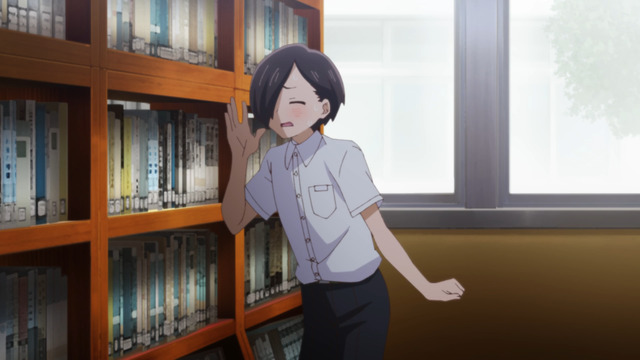
This turned to be a lot funnier than I was expecting.
BokuYaba is also about not letting insecurity limit one's own potential. As it turns out, the male lead is not some Potato-kun. Nor is he some sort of mental case. Rather, Kyoutarou pumps up his chuuni levels and tries to role play as a psycho. However, he does this internally. He tells himself these things as a defense mechanism to explain why he's a pariah at school. But he's not outwardly different enough to actually be an outcast. His classmates haven't rejected him; he's merely withdrawn from them. He's not an edgelord; he's a cringelord who's too self-critical. Anna's inadvertent intrusion into his self-described sanctuary away from other people is the catalyst for the changes in how he perceives himself and others.
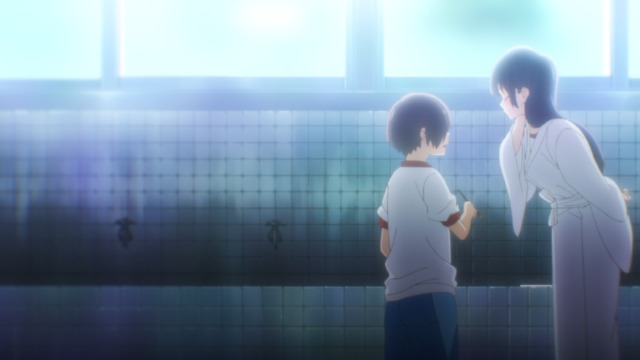
I like how Yamada popped into this scene seemingly out of nowhere like an actual ghost.
Here, too, is where I was afraid Boku no Kokoro no Yabai Yatsu would stumble. There is no shortage of anime and manga involving some TOP FUEL GENKI beauty who, for no clear reason, takes an aggressive liking to a painfully introverted and cowardly schmuck who ends up being an incredibly irritating point-of-view character. Thankfully, The Dangers in My Heart is not one of this lot. The friendship that develops between Kyoutarou and Anna feels natural and relies heavily on interactions that are shown rather than described. The characters in this series are insightful and often intuit that what those around them say (or are unable to say) and what they mean don't always align. The series refreshingly avoids plots based on stupid misunderstandings.
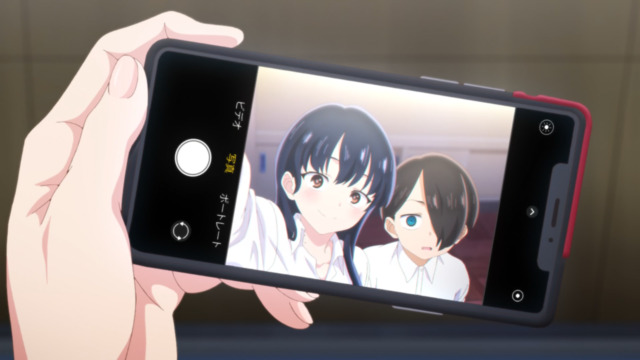
Tiny pictures are the way of love.
I'm not sure how far the BokuYaba anime will advance, but I expect it would require a two-cours run to catch up to with the manga. After all, there are more than 100 chapters already. The first two episodes of the anime covered the first 11 of these, so maybe the anime will adapt about half or two-thirds of what's out so far? I suppose that's not a bad amount. It certainly includes a number of highlights where characters have revelations about things they suddenly see with more clarity. I'm consistently impressed by how good the manga is at depicting these types of moments. I also like the anime adaptation so far, so I'm hopeful it will prove adept in these specific areas as well.
Posted in Boku no Kokoro no Yabai Yatsu, Boku no Kokoro no Yabai Yatsu (manga), Manga | Tags: Emo, Initial impressions, Manga, Romance, Season Introduction, Spring 2023, Tiny Pictures Are the Way of Love | Permanent Link
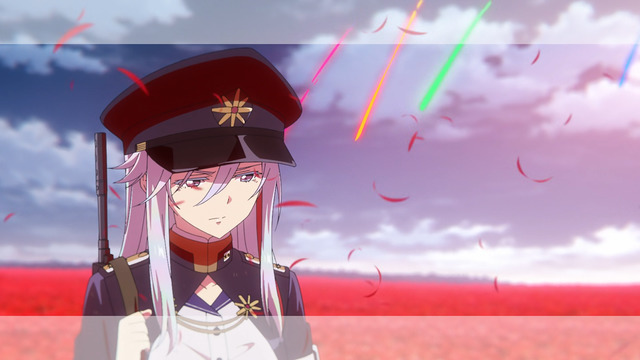
Congratulations on not being dead.
P.S. Spoilers.
To tell you the truth, I sort of forgot 86 Eighty Six season 2 two had delayed its final 2 two episodes to March 2022 Two Thousand Twenty Two. I mean, things were sort of tense when we last saw our characters, but it totally could have just ended the season where it was. I would have accepted a cliffhanger-ish ending and an indefinite wait until the next cours, whenever that happens to be. I mean, I think it's reasonable to expect there will be another cours at some point. The anime seems pretty well-regarded, and I've warmed up to it as well, despite some initial misgivings.
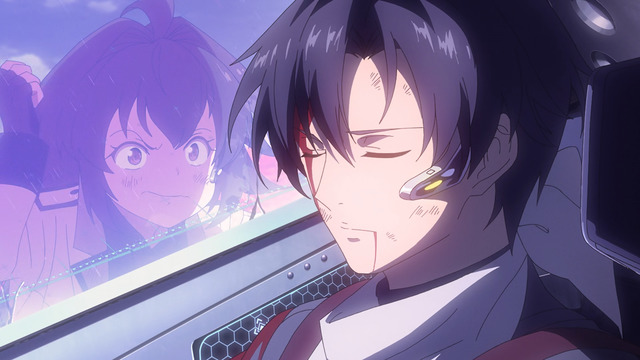
Congratulations on not being dead.
P.S. Spoilers.
86 is at its best when it's exploring how its characters relate to each other and to their shared experiences with war. These aspects of the series are much more compelling than how it depicts the war itself or the dynamics of the societies involved. This is not necessarily because I find many of those elements unrealistic, but rather more because I'm not invested in their outcomes. I'm not particularly invested in most of the characters either, but the series has devoted enough time to developing them that I can at least appreciate their emotional resonance.
Posted in 86 Eighty Six | Tags: Autumn 2021, Bad Things Happen to Good People, Crying, Girls With Guns, Legs that go up to her neck, Light Novels, Spoilers, Tiny Pictures Are the Way of Love, Ueda Kana, war, War Is All Hell, Winter 2022 | Permanent Link
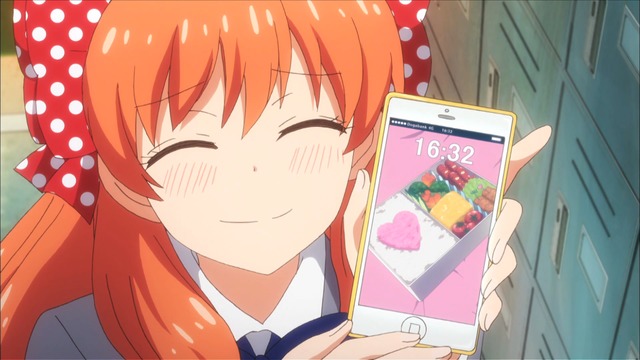
Tiny pictures are the way of love.
I got a late start on Gekkan Shoujo Nozaki-kun, but was convinced to give it a try after being alerted that it invoked the the Ayako Doctrine. Not that you need to be an Ayako fan in order to enjoy Nozaki-kun. The show is quite clever and funny. Really, the only reason why I wasn't already watching it was because I ran out of space in my schedule while I was following dreadful wrecks such as Rail Wars! Besides, I sort of already had a general idea of what Nozaki-kun might be like simply by the way it looks. (Hint: Chiyo's enormous polka dotted head ribbons never stop being amusing.) Specifically, I trusted that it was the show's execution more than its setup that would make or break the series for me. I was willing to wait to hear how other people responded to the initial episodes first.
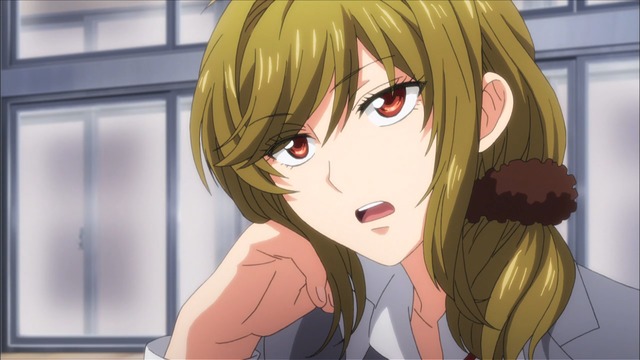
Seo Yuzuki has been racking up Girl of the Year points all season.
Fortunately, the execution has been dead on. Through seven episodes, Gekkan Shoujo Nozaki-kun is a solid comedy. However, I am somewhat fearful that its jokes may burn out quickly if there aren't more variations or diversions from the characters' quirky attributes. This is a common problem with a lot of anime—not just comedies—where many characters' defining shticks end up dominating their personalities. (See, for example, Cure March from Smile Precure! She's basically a Pokemon now, unable to say anything aside from her signature catchphrase.)
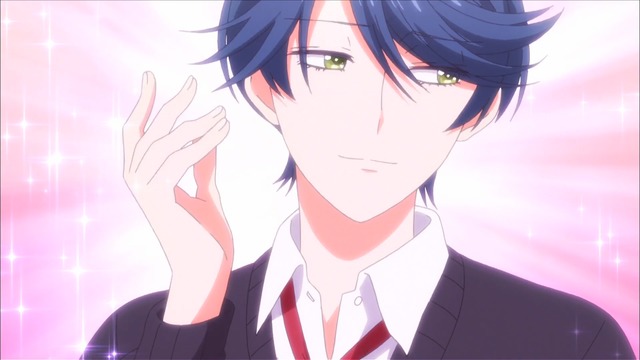
This, for example, is basically Kashima's joke right here.
So far so good, though. Chiyo herself does not rely on any particular gimmick, unlike, say, Yuzuki. In fact, I attribute Chiyo's appeal to two factors: (1) Chiyo is a great point-of-view character. I particularly love how Ozawa Ari mutters her incredulous sotto voce reactions. This is my first time noticing this seiyuu, but I'm looking forward to more of her work in future comedic roles. (2) Chiyo is really orange. What? It's a good color.
Note 1: In re Seo Yuzuki: I enjoy how Sawashiro Miyuki is playing the basketcase Yuzuki so far. Everything she does is splendid, but I'm concerned she'll get pigeonholed if the series runs more than one cour.
Posted in Gekkan Shoujo Nozaki-kun | Tags: AYAKO DOCTRINE, footnotes, Girl of the Year, Girl of the Year 2014, Miyuki Sawashiro, Romance, Season Introduction, Summer 2014, Tiny Pictures Are the Way of Love, Unrequited Love | Permanent Link
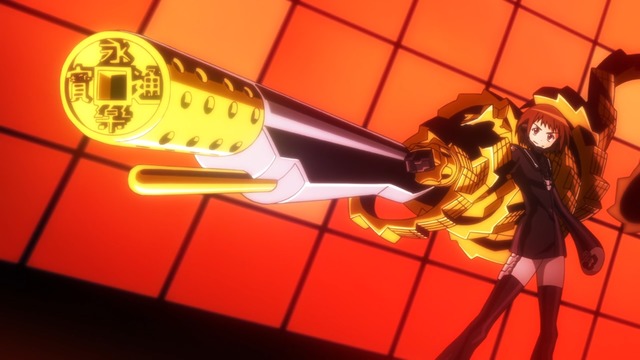
It's a good thing this gun doesn't have any mass.
Everything I know about Japan's Sengoku era I learned from manga and anime. However, even in that respect, my knowledge of this period of history is woefully incomplete. There are a ridiculous number of Nobunaga-themed anime and manga, and I've watched or read basically none of them. In fact, most of what I do know comes from one anime, Oda Nobuna no Yabou and one (excellent) food manga, Nobunaga no Chef. Considering that at least one Nobunaga anime appears to have aired nearly every season of every single year since his death in 1582, that's a lot of Nobunaga anime I've missed.
(more…)
Posted in Nobunaga the Fool, Nobunagun | Tags: Asakawa Yuu, Girls With Guns, Season Introduction, Tiny Pictures Are the Way of Love, Winter 2014 | Permanent Link
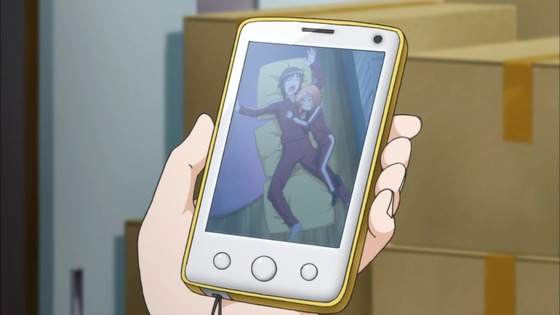
Tiny pictures are the way of love.
People have mostly stopped trying to make Haruka miserable. I guess that's good, but with the show only at the halfway mark I wonder if it's on the path towards a non-ending ending, or if there will be some sort of phony melodrama that escalates out of control just out of nowhere? Seeing as how the show started out with a broken home and a dead mom, it's going to take more than a little bullying to pull off the Big Finish. Maybe Sentinels?
Posted in Kotoura-san | Tags: Moe Blobs, Tiny Pictures Are the Way of Love, Winter 2013 | Permanent Link
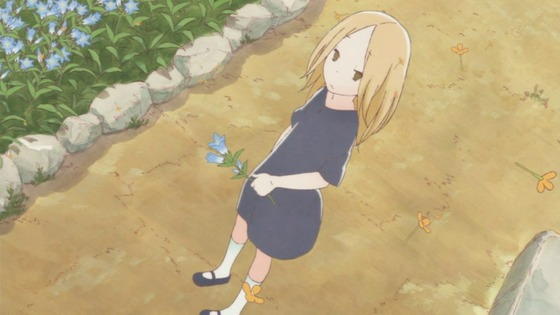
Daikichi's first impression of Rin is a recurring image.
Usagi Drop was one of the best shows from summer 2011, losing the top spot in my rankings only because of its brief 11-episode length. However, based on the outcry the original manga created, the anime's short run was its saving grace, due to the unspeakable horror of the manga's conclusion. Or so it goes.
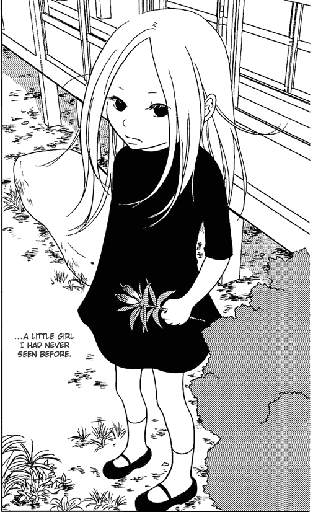
Daikichi sees Rin for the first time, manga version.
I've long learned of the otaku penchant for gross overreaction, so I took the time to read the entire manga myself—something I suspected many of its critics neglected to do. Based on my findings, I can understand why so many otaku reacted the way they did, but I personally had no issues with the manga's ending myself, possibly because I'm much less critical of anime and manga in general; I at least try not to group things into only two categories—AWESOME and HORRIBLE—there is a lot of stuff in that middle ground I enjoy, even if I don't necessarily enjoy all of it.
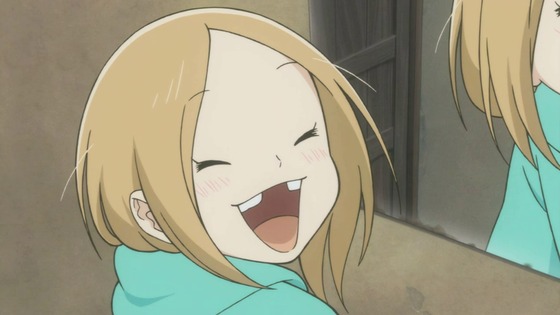
Here, the Usagi Drop anime ends.
The 11 Usagi Drop anime episodes duplicate the first 25 chapters of the 56-chapter manga almost scene for scene. The anime is very faithful to the source material. The anime also ends where it does because of the manga's timeskip. That's right, more than half of the Usagi Drop story occurs after the timeskip, so arguably the latter half is the "real" story which the first part merely sets up. At a minimum, a truculent reader should at least grudgingly acknowledge the second half is intended to be as important as the first half.
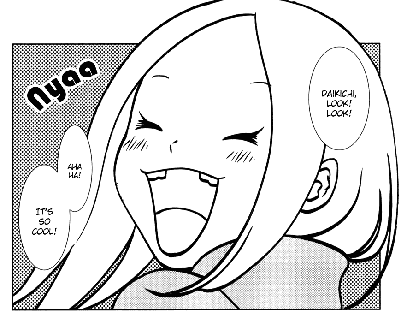
Here, the Usagi Drop manga is merely beginning.
Spoiler Warning: I won't explicitly discuss the manga events, but most readers will probably be able to easily guess the spoilers from context with little effort. When I first heard about the post-timeskip outrage, I compiled a mental list of likely spoilers based on what I knew about otaku and what I knew about Japan and what I had seen in other anime and manga. Sure enough, this list of possible rage-inducing outcomes included two of the spoilers that actually occurred in the manga, although to be fair, I was incorrect about a material detail about one of them and the one I was 100% correct on was the one I had already intuited from a scene in the anime before I had even heard about the entire controversy.
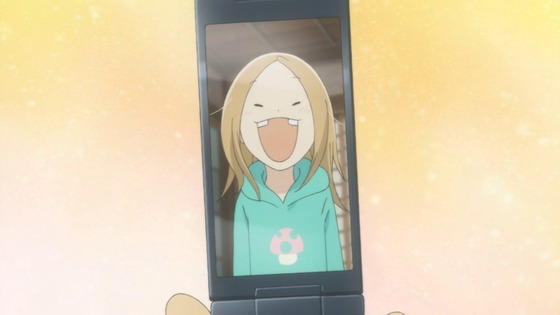
Rin shows off her missing teeth.
So why so much hostility towards the manga's ending? Frankly, I attribute it to one (or both) of two reasons. One, otaku might not be exposed to much western literature and theater if they spend most of their free time voraciously consuming manga and anime. Thus, their expectations as to what is appropriate or acceptable follow different conventions. Two, these conventions themselves are tailored in self-perpetuating otaku-friendly ways to be non-threatening. Yeah, most people angered by the Kannagi ex-boyfriend revelation were joking, but notice how none of the K-On! girls are permitted boyfriends either; even a supporting character requires plausible deniability—even in jest—when she is shown with a possible beau. This is not to say that strangers to manga and anime would not revile the Usagi Drop manga ending, but it's possible those with greater exposure to a variety of "acceptable" endings may give the title more latitude because they are more liberal with their expectations. Expectations are probably key here. For example, because its audience has different expectations, nobody bats an eye when Oedipus has sex with his mother and later puts out his eyes, and nobody cares when a Shakespeare tragedy concludes with a half-dozen dead bodies on the stage. And how many readers of the popular A Song of Ice and Fire fantasy novels are offended by all the rape, incest, and teenage brides?
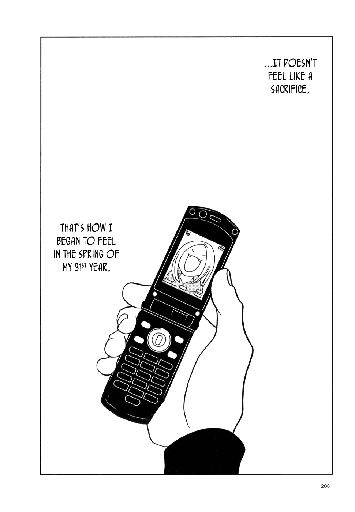
Tiny pictures are the way of love.
I do not claim it is improper for manga and anime fans to hold different expectations for these works, but I do feel that those embracing narrower allowances contribute to the apparently collective overreaction to the Usagi Drop ending. And I do think they overreacted, especially the ones who were offended by second- or third-hand reports about how it played out instead of investigating the matter themselves. I can understand not wanting to "stain" a cherished impression created by the first half of the story, but someone forcing himself to look away to avoid something he's predetermined to condemn as distasteful strikes me as amusingly immature.
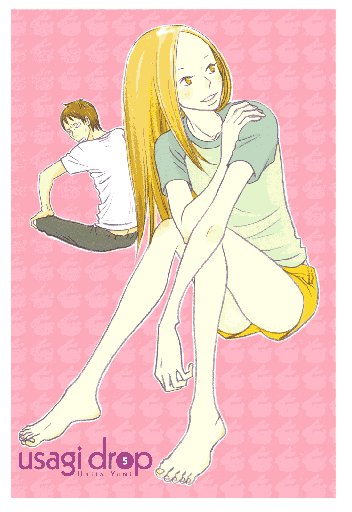
I forgot to mention timeskip Rin has legs that go up to her neck.
Yes, it turns out most of Usagi Drop is a teen drama, but it's not a bad teen drama unless you claim all teen dramas are bad as a matter of general principle. Guess what? After the timeskip, Rin is a teenage girl. And, like I said, since there are more chapters with Rin as a teenager than there are of Rin as a small child, Usagi Drop arguably is a teen drama. And it's not one of those teen dramas where nothing happens. There's kissing! There's sex! There's pregnancy! But there is also devotion and unrequited love.
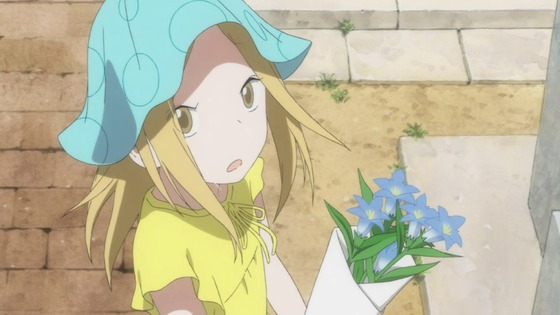
Rin pays her respects.
Frankly, none of this would even be possible were it not for two key elements established in the first half. First, Rin explicitly rejects Daikichi as a father when he broaches the subject. Second, six-year-old Rin is the sweetest, nicest, most well-mannered little girl in history, so Daikichi's parenting—as far as we are shown—consists almost entirely of having a job and being able to sign contracts. Instruction and discipline? Not so much.
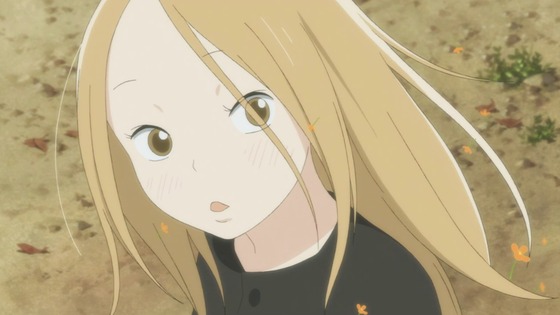
Daikichi remembers how he met Rin.
We also don't see much parenting with regard to Kouki. We know he needed more of it, since he was apparently quite a hellion, but Usagi Drop omits a lot of details. There are at least three really big incidents that occurred between the two arcs, but aside from oblique references to them, the reader remains entirely ignorant as to, you know, what happened.
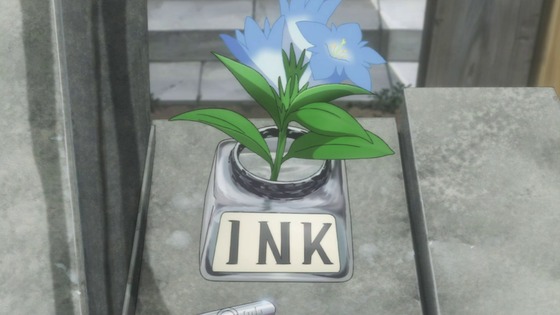
Rin's mother pays her respects.
I've probably said too much already, and if you can't figure out what the big deal is by now, you probably either don't know anything about Usagi Drop to begin with, or you weren't paying attention. If you have figured it out and still refuse to read the manga yourself because you're afraid of tarnishing the image formed by the anime, at least consider this: The first half of Usagi Drop is told from Daikichi's point of view. The second half is from Rin's and Kouki's points of view. This change is what makes the ending work for me.
Posted in Manga, RECOMMENDATIONS, Usagi Drop | Tags: 16-year-old love interests, Childhood Friend, Legs that go up to her neck, Manga, Shoujo, Summer 2011, Tiny Pictures Are the Way of Love, Unrequited Love | Permanent Link
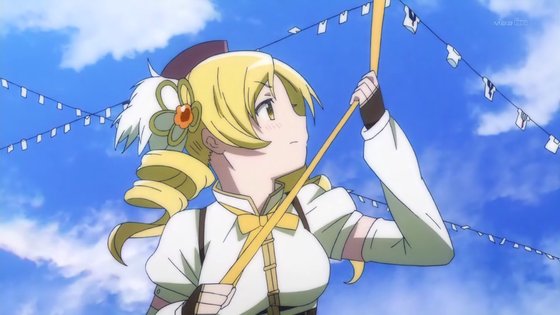
The real antagonists in Mahou Shoujo Madoka Magica are trolls, not witches.
Despite my disdain for SHAFTXSHINBO, Mahou Shojo Madoka Magica (at least what I've seen of it so far, as the remaining episodes were pre-empted due to the catastrophic earthquake and tsunami—they're expected to air in a few days) is really good. [Update: The final two episodes did have some surprises. The rating remains unchanged.] Whether it's good in spite of SHAFTXSHINBO because of Kajiura Yuki and Urobuchi Gen isn't so much important as the fact that they took something which I had fully expected to be unconventional, made it so, and still managed to impress. Although I did not enjoy Mahou Shoujo Madoka Magica nearly as much as its true fans did, it was still easily the best show I watched from winter 2011, admittedly not a very difficult feat when the runner up probably only placed as high as it did thanks to the Hanakana Distortion Field.
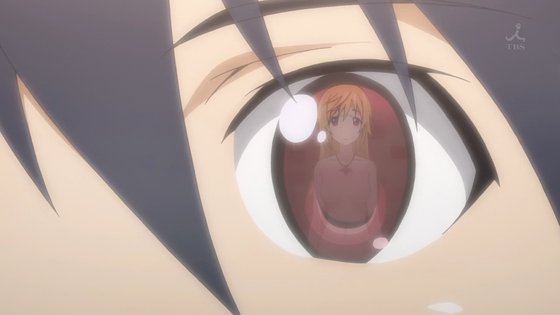
Infinite Stratos needed more Full Frontal Bageena Char.
Infinite Stratos was by no stretch of the imagination a good show, but it was fun to watch. Curiously, it's often the male protagonist that makes or breaks harem comedies, not the bevy of girls themselves. Thankfully, Infinite Stratos does well on both fronts. Potato-kun is mostly unobjectionable, with neither an overpoweringly "strong sense of justice" nor a timid adversion to girls, the two most common flaws of the typical harem comedy putz.
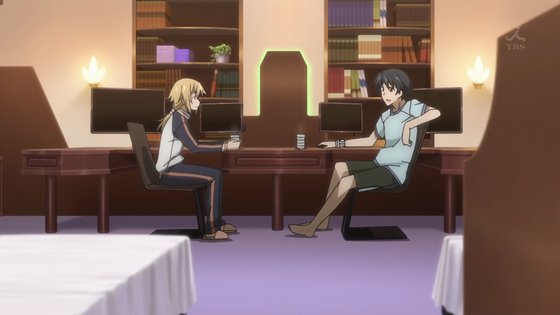
There ain't no way Ichika owns that many books.
Unfortunately, not having those two flaws means Potato-kun needs some other character flaw to be the excuse why he doesn't trophy fuck love all the girls during the course of the show. In Ichika's case, he's a moron. It works out, though, because nearly every girl in his harem is also a moron. This is probably why Charles is so popular, as she's the only girl in the harem who is neither dumb nor crazy. Okay, she did pretend to be a very unconvincing boy for a while, but she gave that up after a few episodes, and the only reason other people bought that act is because the entire school is filled with complete idiots.
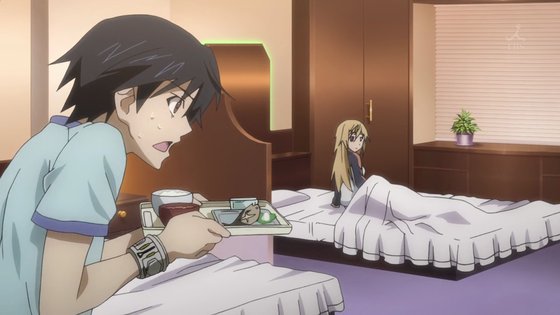
What's that fishy odor?
Anyway, Infinite Stratos was an amusing, harmless diversion and was pretty fun until it decided it needed a plot towards the end. Instead of the Final Battle against MacGuffin, they should have devoted the last three episodes to a footrace or an extended game of tag.
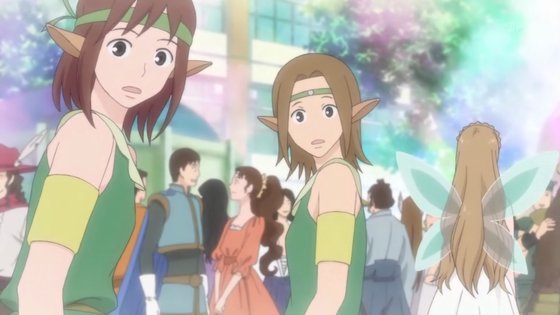
This is the best reaction shot of the entire series. [P.S. Spoilers.]
Kimi ni Todoke really took a dive with 2nd Season in my view and dipped below the Detective Conan Line during the middle episodes because it upset the precarious balance of misunderstandings and heartfulness. Basically the entire season dragged out due to terribly painful communication problems. It made me wish the show was about Ume instead, or maybe Yano falling in love with Pin. (It's not a spoiler, okay? It's right there in the OP!) Thankfully, Kimi ni Todoke 2nd Season pulled itself together during the final three episodes. Pity the entire season couldn't be that good. Had it been, then Kimi ni Todoke Second Season would have been as good as, well, Kimi ni Todoke First Season.
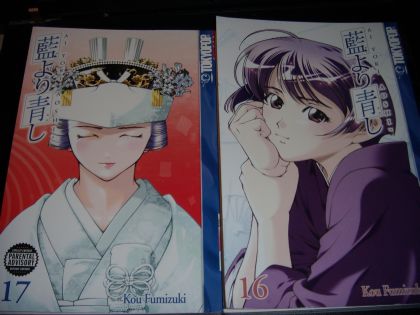
Ai Yori Aoshi volumes 17 and 16.
Somewhat unexpectedly, finishing Kimi ni Todoke S2 makes me wish for a third season of Ai Yori Aoshi—one that follows the manga instead of jumping all over Creation. The final volumes of Ai Yori Aoshi really deserve a lot better than the lackluster impression the two inconsistent anime seasons left behind. They may have to animate Aoi's bra in the series climax with CGI, though. (Ha ha. "Climax.")
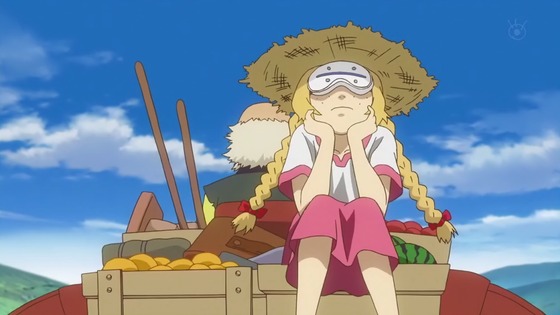
Take Fractale easy.
Viewers seem fairly divided on Fractale, particularly with regard to its ending. Much as I postulated when describing my early impressions of the show, the way I see it, there are two camps: Those that care about its pedigree and subsequently chose to watch Fractale critically, and those who just wanted to enjoy themselves because anime is still a hobby. That latter group likely enjoyed Nessa's turbo-genki moments quite a lot more, and even if there might be a Hanakana Distortion Field at work, they presumably enjoyed the show more as a whole.
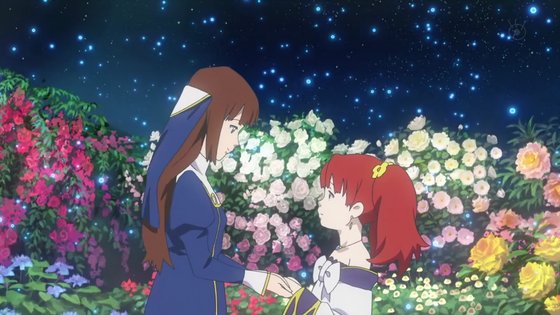
How did they end up in the ending to Heartcatch Precure!?
This is not to say Fractale doesn't suffer from a host of problems. Personally, I felt all of the fighting and battle scenes were comically bad, and a lot of things (especially towards the end) didn't make any sense. I was also somewhat crestfallen to learn Phryne wasn't just acting stupid—she really was an idiot. It's because of these problems that I don't rank Fractale higher among the winter 2011 shows. Nevertheless, it was still pretty good overall, and including an audio cameo by Nausicaä herself towards the end to bookend the visual references from earlier in the season was pretty nice, even if I totally missed it.

If you advance this scene frame by frame you can catch
the exact moment Ran's heart breaks. [P.S. Spoilers.]
Detective Conan is Detective Conan. As I mentioned before, Detective Conan is basically my control group when it comes to ranking shows. Each season of Detective Conan is about the same and typically as good as any of its myriad previous seasons. This remained true during winter 2011, although I would like to point out the "Tear Drops" OP totally messes with the heads of Shinichi + Ran 'shippers.
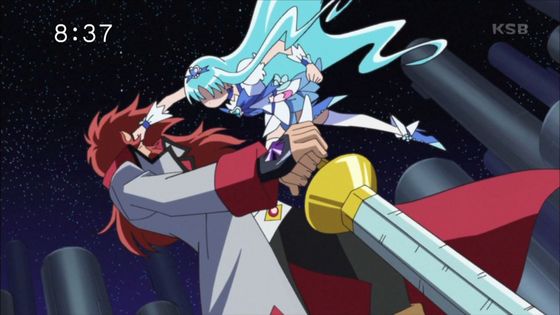
IN THE FACE!
The end of Heartcatch Precure! was all right, even though Cure Blossom remained mostly useless. Probably the highlight for me was Cure Marine suckerpunching Kumojacky in the face on general principle before he could launch into an idiomatic, vaguely evil speech.
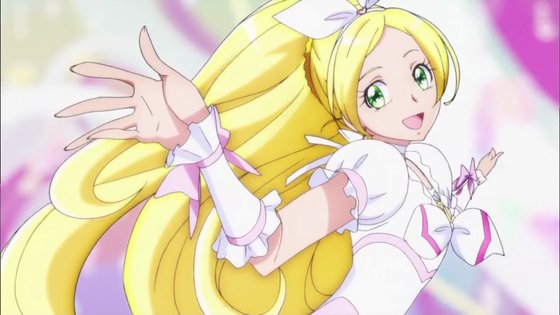
More punching, less baking.
Suite Precure is decent, but nothing really special unless you care about voice actresses. Koshimizu Ami, Orikasa Fumiko, Toyoguchi Megumi, and Mitsuishi Kotono are all on board. In fact, I should probably check Danbooru for what I'm sure must be copious amounts of seiyuu_joke parody/crossover fan art.
I dropped Freezing not because it was exploitative, but because it was kinda retarded. I can't wait for the second season of Seikon no Qwaser, though. (No, seriously.)
I was intriqed by Ri♡ -Rainbow Gate!- because it was Highlander with card battles, but I think I lost interest after two episodes beause Rio's hair sucks.
Yumekui Merry didn't suck, but I dropped it after the first episode because I wasn't interested. I heard it gets better later, but I still suspect Merry might actually be a boy.
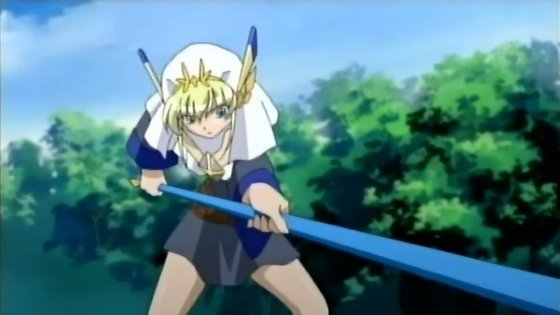
Cosprayers Line.
I dropped Wolverine after a single episode because it was God awful. Congratulations, Wolverine, you are easily WORSE THAN COSPRAYERS. All you need to know about the show is that in the first episode, a group of people flying around with jetpacks bent on attacking Wolverine with rifles decide to all fly close enough for him to gut them with his claws. Then later on Wolverine breaks one of Sir Isaac Newton's Laws of Motion. Look, I'm okay with his indestructible skeleton and canonical ability to regenerate from a single remaining drop of blood, but c'mon.
Final tally: Mahou Shoujo Madoka Magica > IS: Infinite Stratos > Kimi ni Todoke 2nd Season > Fractale > Detective Conan > Heartcatch Precure! > Suite Precure | Dropped: Freezing > Ri♡ -Rainbow Gate!- > Yumekui Merry | WORSE THAN COSPRAYERS: Wolverine.
Posted in Ai Yori Aoshi, Detective Conan, Fractale, Freezing, Heartcatch Precure!, IS Infinite Stratos, Kimi ni Todoke, Mahou Shoujo Madoka Magica, Rio -Rainbow Gate!-, Suite Precure♪, Wolverine, WORSE THAN COSPRAYERS, Yumekui Merry | Tags: Characters in Need of Better Shows, Dropped Shows, Fan Service, Hair, Hanakana Distortion Field, Hanazawa Kana, Harem Comedy, Hirano Aya, J.C. Staff, Legs that go up to her neck, Mahou Shoujo, Mamikore, Plying Girls, Season Conclusion, SHAFT, SHAFT X SHINBO, Spoilers, Superlovely Character Designs, Tiny Pictures Are the Way of Love, tsundere, Winter 2011 | Permanent Link
|
|




